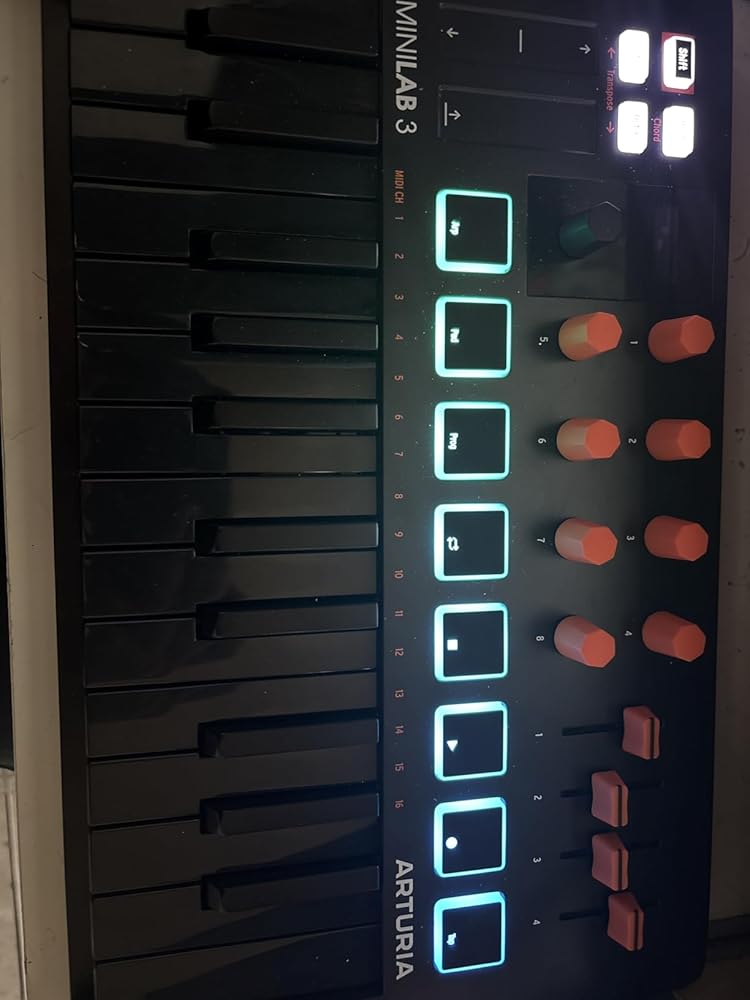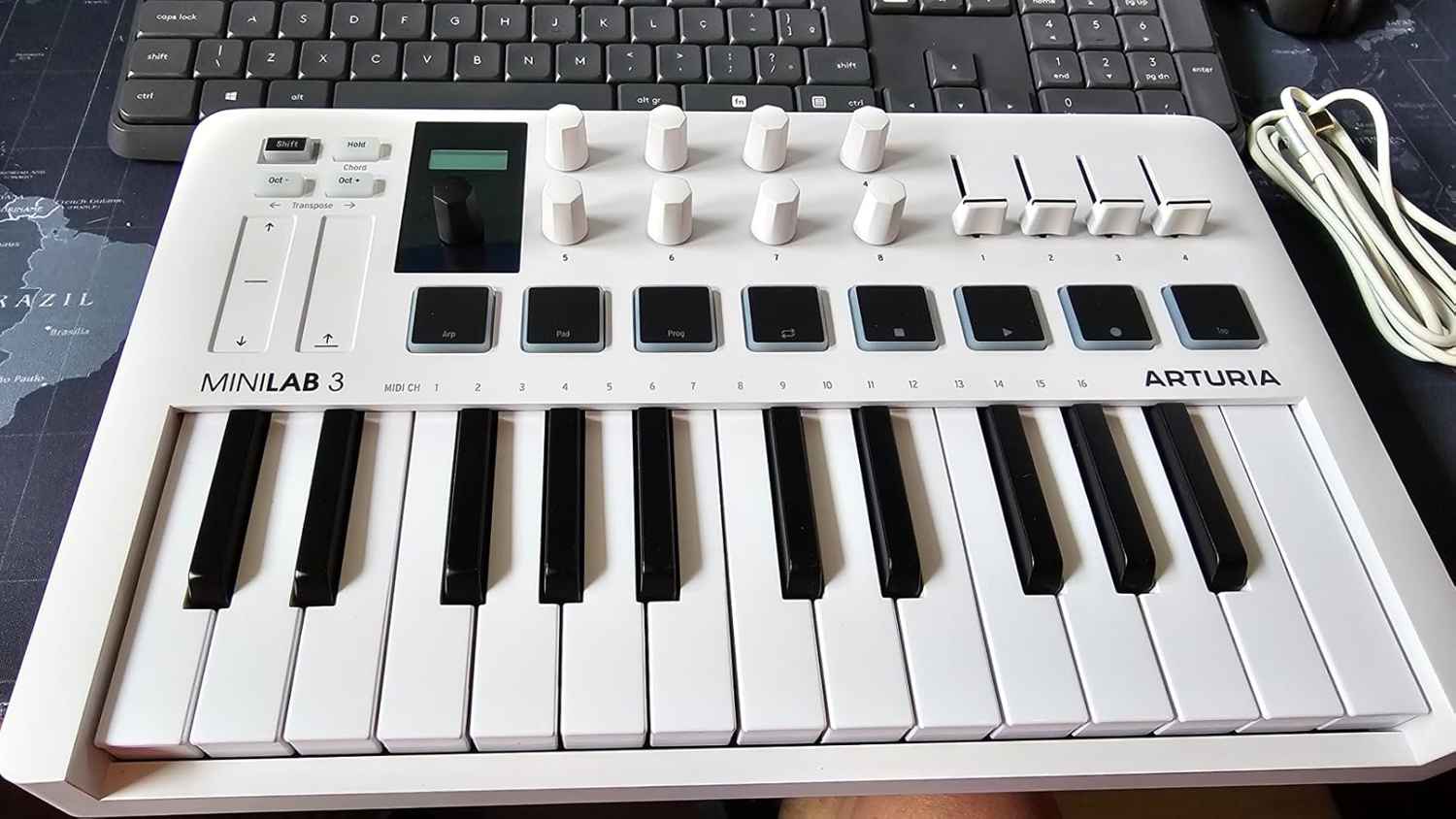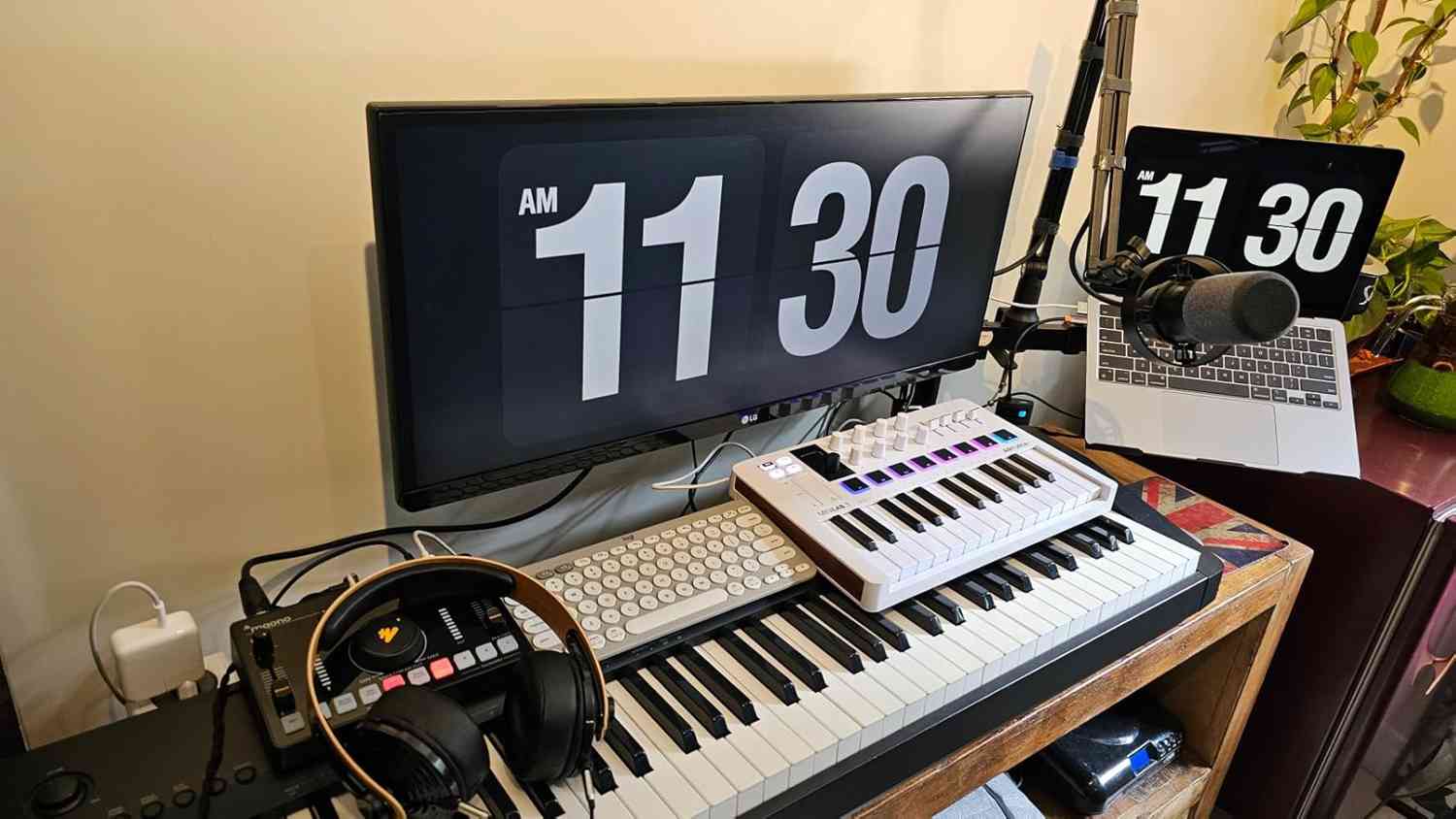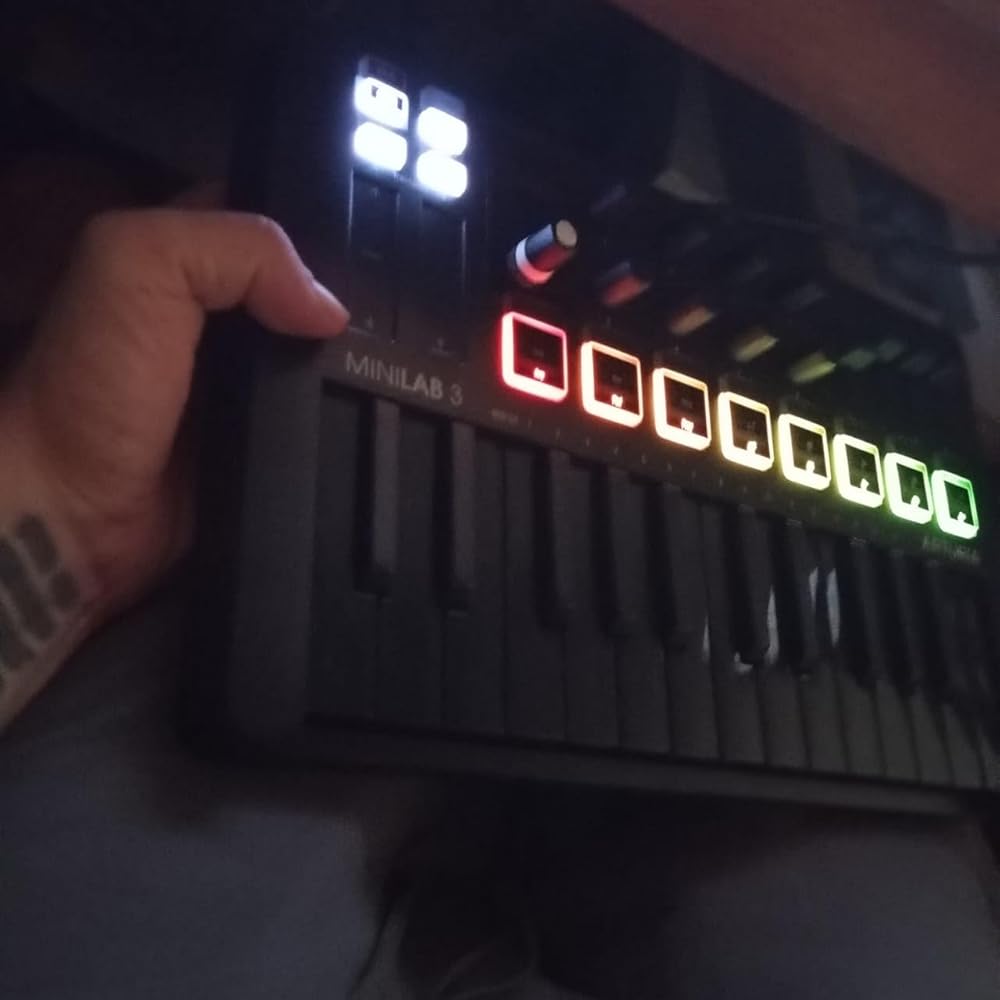



First Impressions: Unboxing the MiniLab 3 feels like opening a premium gadget. The white finish and faux wood panels give it a sleek, studio-worthy look that stands out from typical black MIDI controllers. At just under 4 lbs, it’s backpack-friendly but doesn’t feel flimsy – that recycled plastic construction is sturdier than expected.
Keybed Love: These 25 semi-weighted keys ruined me for other mini controllers. Compared to the toy-like feel of Akai’s MPK Mini, the MiniLab’s keys have satisfying resistance and proper velocity response. Playing synth leads actually feels expressive, though piano purists will still crave full-sized keys.
DAW Superpowers: Where this shines is workflow integration. Mapping the 8 RGB pads to drum racks in Ableton Live transformed my beat-making – no more mouse-clicking! The endless encoders and faders (which glide smoother than my laptop trackpad) make mixing tactile. Pro tip: Download Arturia’s DAW scripts for instant mapping magic.
Pad Controversy: Those straight-line pads divide opinions. They’re slightly wobbly at the edges compared to Akai’s legendary MPC pads, but the RGB feedback helps when finger-drumming at night. I did experience occasional double-triggers until adjusting my tapping technique.
Software Bonanza: Analog Lab V alone justifies the price with its thousands of pro presets. The included Ableton Lite + Model D piano are icing on the cake – though be warned about account-creation fatigue across all bundled apps.
Portable Studio MVP: This lives permanently in my travel backpack now. Whether sketching ideas on a train or controlling virtual instruments during livestreams, that USB-C connection works flawlessly with iPad setups too (after some GarageBand mapping tweaks).
The Verdict: For under $200, you get pro-grade keys, smart DAW integration, and software worth hundreds more. While pad perfectionists might supplement with an MPC, the MiniLab 3 remains my go-to recommendation for producers wanting premium feel without breaking the bank.

